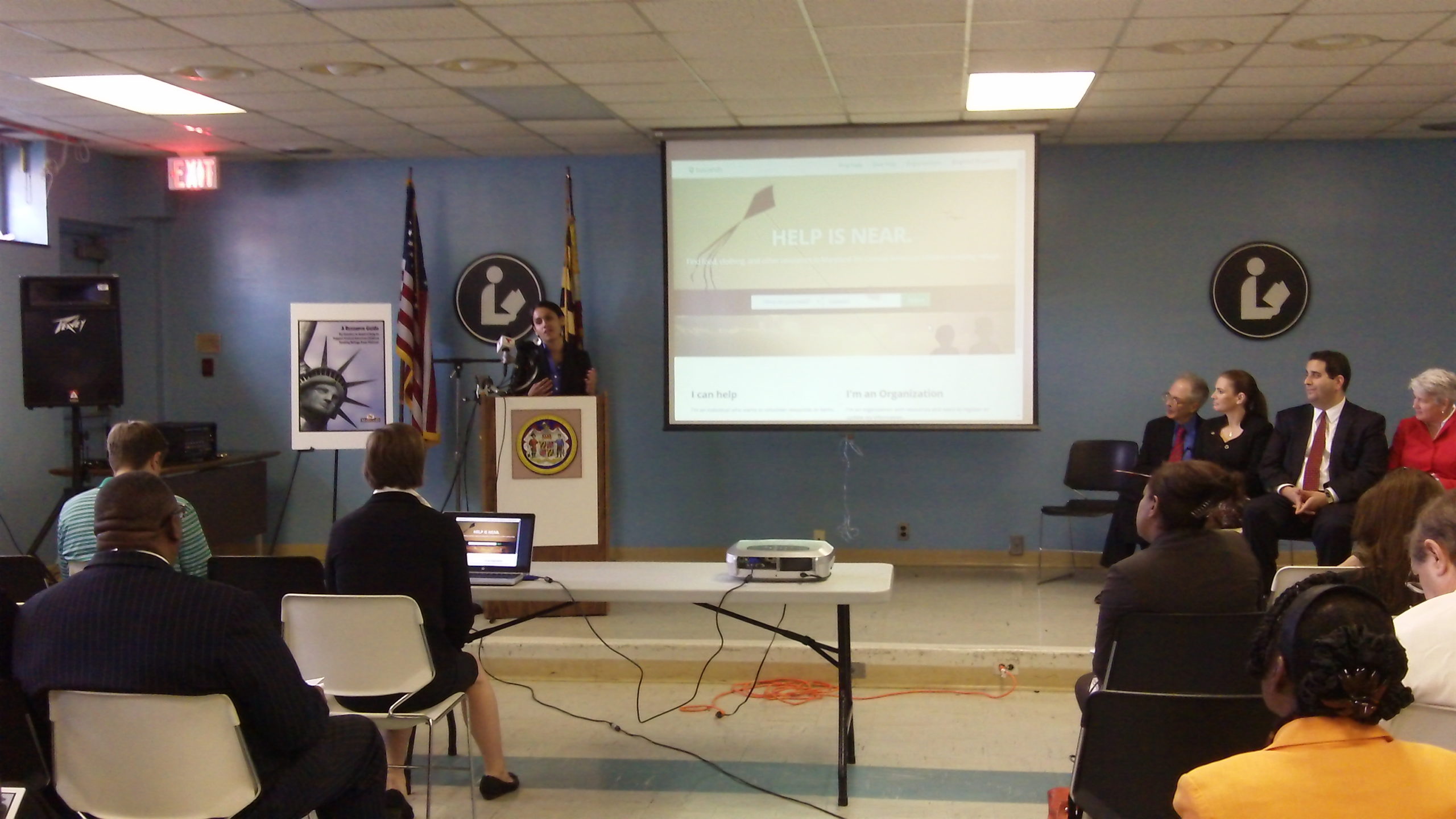Last week, Maryland officials unveiled a new initiative to respond to the recent influx of child migrants in the state: Buscando, a website that was whipped up during a weekend Tech Lady Hackathon session.
“This is the kind of opportunity coders are waiting for,” said Aliya Rahman, a program director at Code for Progress, explaining how the website worked to a group of community organizers in the Hyattsville Branch Library.
Code for Progress was a natural pick to jumpstart the project, she added, because many of its fellows “come from communities where the idea of ‘other people’s children’ just doesn’t exist.”
The website was developed free of charge by volunteers at Code for Progress, Hear Me Code and the Tech Lady Hackathon. The initial prototype was developed during the second Tech Lady Hackathon on July 26.
Yes, said Rahman, it was coded from A to Z by lady hackers: “This is a woman-built app.”
Aurea Martinez began participating in the project as a Code for Progress fellow. An undocumented immigrant who moved from Mexico when she was two, she said that stories of unaccompanied minors hit close to home. “I was a baby and my mom carried me on her back when she crossed the border,” she said. She does not remember it, but know it’s a “very scary journey to make … I can’t imagine ever doing that myself.”
Buscando — which means “looking for” in Spanish — will help link migrant children and their host families to the community resources available to them in their vicinity. The website has mapped 1,300 organizations that provide various services, including shelter, medical care and legal support. Maryland, which has large El Salvadoran, Guatemalan and Honduran populations, has drawn about 3,000 unaccompanied children this year alone.
Hear Me Code founder Shannon Turner cooperated closely with Rahman on the project. Ever the proud coder, she explained, “everything is all open-sourced,” making it “very easy for all other states to replicate it,” she said.
“The Buscando website has been a labor of love,” said Anne Sheridan, the executive director of the Maryland Governor’s Office for Children. Marveling at their speed, she added, “coders have this fabulous mentality of just getting something done [and] then making it better.”
At one point during the presentation, a member of the public asked whether the website could be modified to allow listing organizations providing different types of resources all at once. Rahman quipped proudly: “We fixed that!”
Join the conversation!
Find news, events, jobs and people who share your interests on Technical.ly's open community Slack

DC daily roundup: Startup founders offer praise; Howard U breaks application record; NavalX gets new director

DC daily roundup: Washington Post's AI collab; a greentech glossary; Halcyon's debut Climate Fellowship cohort

DC daily roundup: Inside UMCP's new ethical AI project; HBCU founder excellence; a big VC shutters MoCo office

